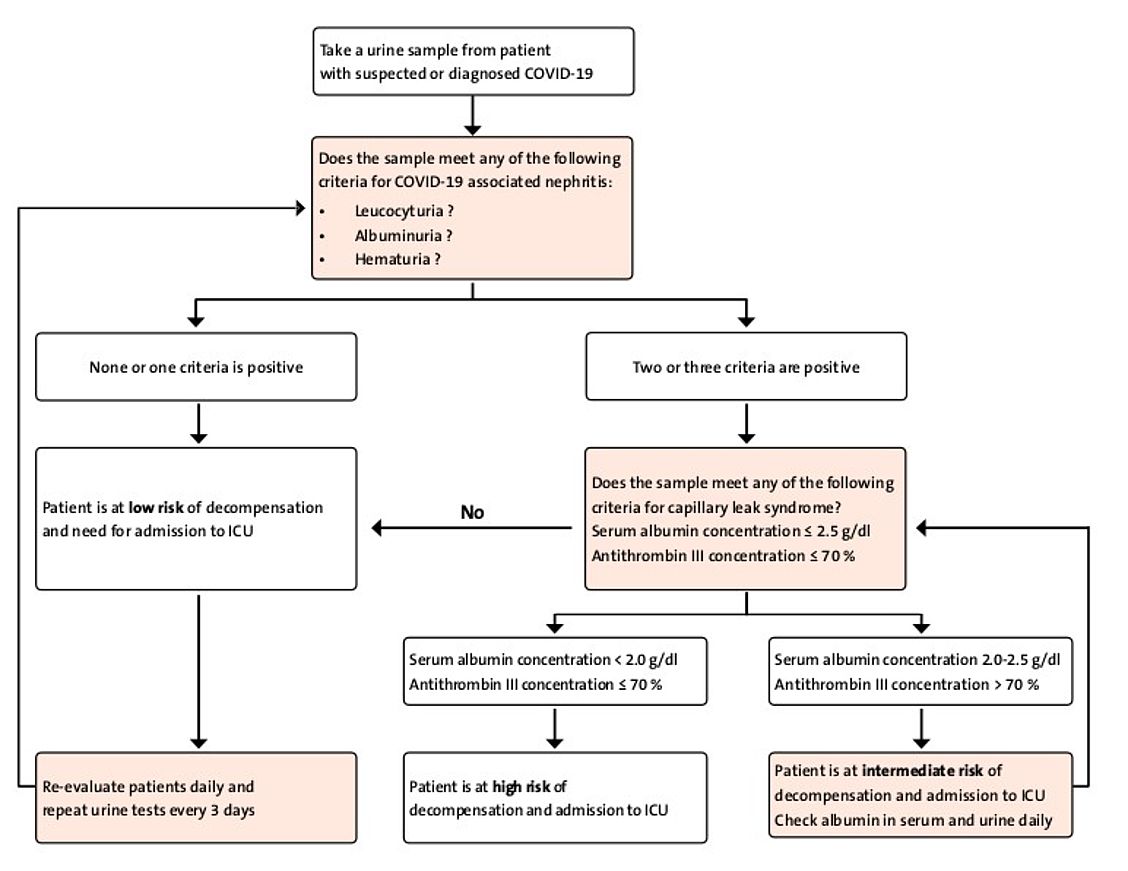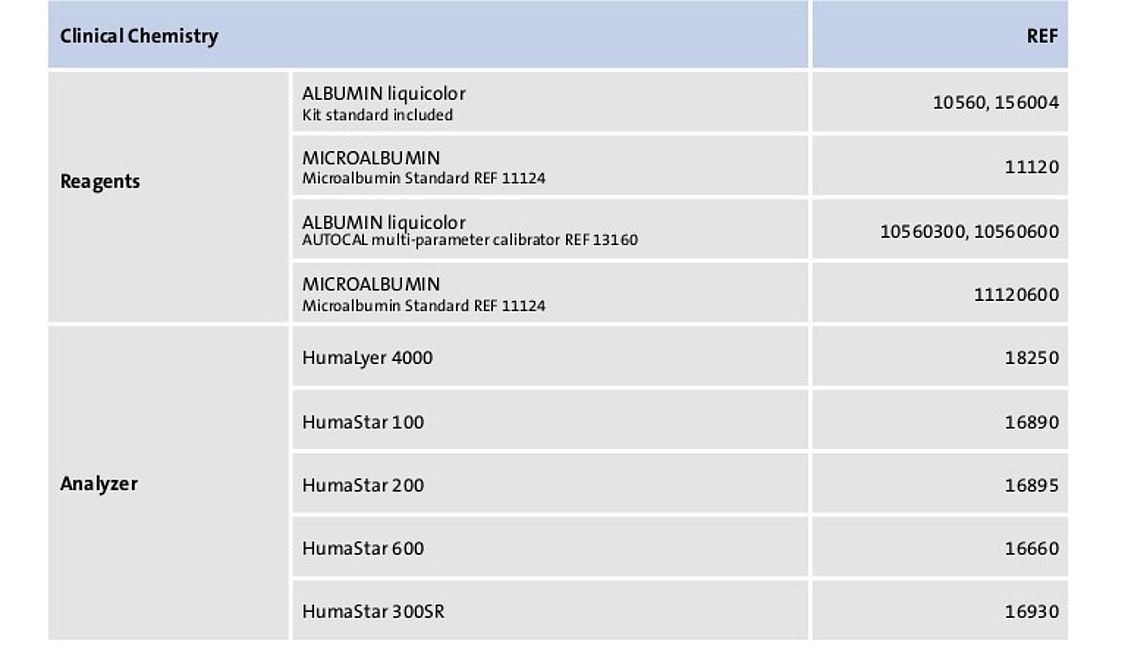- Lab Professionals
- Trends & Topics
Publication about COVID-19 Kidney disease
An early warning for severity and complications
Several publications indicate that the novel coronavirus SARS-CoV-2 does not only affect the lungs but also impacts numerous other organs, like kidneys which have been observed to be the second most frequently affected organs.
A recent publication of the German University hospital Göttingen recommends admission to the intensive care unit (ICU) in case of nephritis in COVID-19 patients. To detect nephritis, simple urine tests such as the determination of leukocytes, albumin and hemoglobin are used, as shown in the flow chart below. The presence of nephritis can be used as an indicator of the Capillary Leak Syndrome (CLS), which can be a prediction of serious complications such as fluid overload, respiratory failure and the need for ICU admission. Hypoalbuminemia is a common finding in CLS; the three criteria for nephritis are leucocyturia, albuminuria and hematuria.
The following laboratory values were observed in hospitalized COVID-19 patients
- Patients with mild COVID-19 disease on normal wards
None or one of the nephritis criteria are positive and/or serum albumin concentrations above 2.5 g/dl (25 g/l).
For this group, it is recommended to re-evaluate patients daily and repeat urine tests every 3 days. - Patients with intermediate risk Two or all three nephritis criteria are positive and serum albumin concentrations in the range of 2.0 – 2.5 g/dl (20 - 25 g/l).For this group, it seems to be useful check urine and serum albumin daily.
- Intensive care patients with severe COVID-19 disease
All three nephritis criteria are positive and serum albumin concentrations below 2 g/dl (20 g/l).
Why are serum albumin and microalbumin levels abnormal in COVID-19 patients?
Serum albumin
The capillary leak syndrome (CLS) is characterized by hypoalbuminemia (reduced serum albumin concentration). CLS is caused by a greatly increased permeability of the capillary walls of the blood vessels, resulting in a massive leakage of plasma into the interstitium.
Albumin in urine (microalbumin)
Albuminuria is considered a clinically important indicator of deterioration in renal function. In individuals with hypertension and vascular disease it is a risk factor for an increased incidence of coronary events.
Proposed algorithm for early detection of COVID-19-associated nephritis and CLS syndrome and admission to ICU1
Modified flow chart: Proposed algorithm for early detection of COVID-19-associated nephritis and CLS syndrome and admission to the Intensive Care Unit1 (modified from Gross et al.)
References
- COVID-19-associated nephritis: early warning for disease severity and complications. Gross O., Moerer O., Weber M., Huber T.B.,Scheithauer S, doi.org/10.1016/S0140-6736(20)31041-2
- Kidney disease is associated with in-hospital death of patients with COVID-19, Yichuan Gheng, Ran Luo, Kun Wang, Meng Zhang, Zhixiang Wang,Lei Dong, Junhua Li, Ying Yao, Shuwang Ge, Gang Xu, Kidney international (2020) 97, 829-838
HUMAN reagent kits for serum albumin and albuminuria testing
HUMAN offers reagents and analyzers for the determination of serum albuminand of microalbumin in urine.







